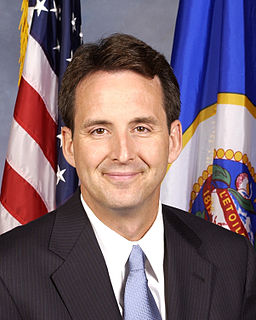A Quote by John Quelch
It is well documented that brands that increase advertising during a recession, when competitors are cutting back, can improve market share and return on investment at lower cost than during good economic times.
Related Quotes
There are times when a market such as housing, transportation or the stock or mortgage market keep rising and people with capital want to join in this growth. Soon the markets become overheated, partly because of the abundance of investment money and speculation. This is when the government should raise interest rates and increase the cost of borrowed money. Governments are shy about doing this because it could cause the very recession. Yet this is the best time to do this so that the inevitable recession never reaches the magnitude of the recent Great Recession.
The challenges, the changes we're talking about often seem to them like unbelievable opportunities to deliver a product quicker, better. If you can improve the quality, lower the cost, and improve the turns - and you can do that because your information systems, your delivery systems, are better because of technology - well, you see that as a wonderful opportunity to gain market share.
In industries where a lot of competitors are selling the same product - mangoes, gasoline, DVD players - price is the easiest way to distinguish yourself. The hope is that if you cut prices enough you can increase your market share, and even your profits. But this works only if your competitors won't, or can't, follow suit.
Buying a share of a good business is better than buying a share of a bad business. One way to do this is to purchase a business that can invest its own money at high rates of return rather than purchasing a business that can only invest at lower ones. In other words, businesses that earn a high return on capital are better than businesses that earn a low return on capital.
What the new fertilizer technology has accomplished for the farmer is clear: more crop can be produced on less acreage than before. Since the cost of fertilizer, relative to the resultant gain in crop sales, is lower than that of any other economic input, and since the Land Bank pays the farmer for acreage not in crops, the new technology pays him well. The cost-in environmental degradation-is borne by his neighbors in town who find their water polluted. The new technology is an economic success-but only because it is an ecological failure.
The faults of advertising are only those common to all human institutions. If advertising speaks to a thousand in order to influence one, so does the church. And if it encourages people to live beyond their means, so does matrimony. Good times, bad times, there will always be advertising. In good times, people want to advertise; in bad times they have to.
The marketplace measurement in politics is something called an election. It's a pretty good barometer - it's transparent, it's numerical, it's objective. It gives you a pretty good measure of what your customers think of you. And in 2006 and 2008, the marketplace was telling the Republicans, We prefer the products and services of your competitors. And so when you're losing market share, you step back and say, What can we do differently?




































